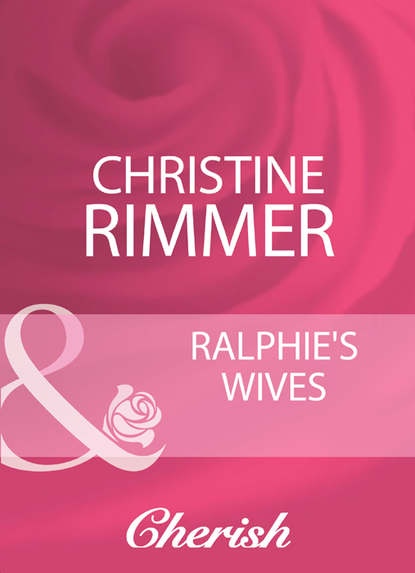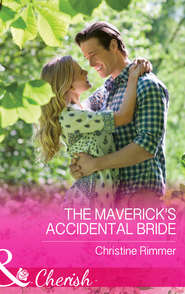По всем вопросам обращайтесь на: info@litportal.ru
(©) 2003-2024.
✖
Ralphie's Wives
Автор
Год написания книги
2018
Настройки чтения
Размер шрифта
Высота строк
Поля
“Don’t be crabby, Reina.” His voice changed when he said the unfamiliar word, became softer, more musical.
“What’s that, Spanish?”
He made a sound in the affirmative. “Reina. Queen.”
She started to tell him not to call her that, but couldn’t quite do it. Why not? It was a question she refused to analyze. She said, “I’d be a lot less crabby if you’d agree to sell me your half of my bar.”
“Help me get what I want. Then we’ll see about the bar.”
“And you want?”
“Take a wild guess.”
She didn’t have to guess. She knew. She muttered, “Answers.”
“Got it on the first try. And my take is that you really cared for the old SOB. I can’t figure out why you don’t want answers, too—unless you already have them.”
She tried to whip up a little outrage, but it just wasn’t happening. Wearily, she accused, “Meaning that you think I had something to do with what happened to him.”
“My instincts tell me you’re not involved.”
She ladled on the sarcasm. “I am so relieved to hear that.”
“But I do wonder…” He let the sentence wander off. She waited, refusing to prompt him. He went on at last. “Maybe there’s someone you feel you have to protect.”
“Why would I be protecting some drunk driver I never met?”
“You wouldn’t. If it was some drunk who hit him. But what if it wasn’t?” Before she could respond to that one, he said, “He was killed by a flat-fronted, high vehicle—an SUV, a full-sized van or a big pickup.”
“And you know this…how?”
“Accident description. Force applied above the body’s center of gravity. Forward projection—the body is flattened against the high front of the vehicle, accelerated to the speed of the vehicle, then thrown to the roadway ahead of the vehicle. In Ralphie’s case, the vehicle went right over him after hitting him.”
Phoebe’s stomach was suddenly queasy. She shut her eyes—and saw Ralphie’s lined, leathery face; his too-charming scam artist’s smile. Her eyes popped open—wide—and she argued, “They never found the vehicle, so there’s no way to know for sure what it was.”
“But they do know what I just explained to you. And they got paint transfer. Off the body. Red paint. I had a little talk with someone down at the OCPD. Paint analysis here takes four to six months. The FBI does it. Did you know that from one tiny flake of paint, it’s possible to get the make and model of just about any vehicle?”
“So in six months, they’ll know what to look for.”
“I don’t want to wait that long. Do you?”
Phoebe had a powerful urge to disconnect the call, throw the phone across the room and pull the sheet over her head.
And then what? Cry until she couldn’t cry anymore? Sleep?
Wake up, go to work, wait six months to find out whether it was a van or a pickup that had killed Ralphie Styles?
Rio said, “Come on, Phoebe. You’re not the little widow, wailing away at a back table as if turning on the waterworks is going to get you somewhere. You’re a strong woman who knows that if something’s not getting done, it’s time to roll up your sleeves and do it yourself.”
“The little widow has a name. Darla Jo. And you don’t know a thing about who I am.”
There was a silence on the line. For a moment, Phoebe thought he had hung up on her.
No such luck. “I could use a cup of coffee.”
Phoebe speared her fingers through her sleep-scrambled hair and growled at the phone.
“I heard that.”
“I’m not meeting you for coffee.”
“Fine. I’ll come there.”
“Forget it. I’m not givin’ you my address.”
“I’ve already got it.” Now, why didn’t that surprise her? “Ten minutes.”
That time he did hang up—before she could tell him to go to hell and stay there. She yanked the phone away from her ear and glared at it, then slammed it down on the nightstand.
And then she got up, pulled on some old jeans and a wrinkled Oklahoma State University T-shirt, and went to put the coffee on.
PHOEBE OPENED THE DOOR scowling. Rio saw the unwilling smile tug at her mouth as she took in his freshly cut hair, his cheap suit and square-framed glasses. “You look like Clark Kent.” She looked like the unmade bed she’d probably just crawled out of. It was a good look for her. Rumpled and sexy. Made him want to reach for her and rumple her up some more.
He kept his hands at his sides. “You’d be surprised the way people open up to a harmless-looking guy in a bad suit.”
“I’ll bet.” She craned her head toward her driveway where his Softail gleamed in the morning sun. “Maybe you ought to rethink that Harley, though. Puts a real dent in the mild-mannered image.”
“I’m on it. I’ll pick up a car this morning. A beige sedan. When I’m working, I like a full-sized car. A nice, dependable model. With a big engine. A guy never knows when he’ll need to get away fast.”
“In your case, I completely understand.” She moved back.
He took that to mean she was letting him in and stepped over the threshold directly into her living room, which was painted a buttery-yellow with white trim. The furniture was simple, Pottery Barn meets fifties retro. One of those square fifties couches, lamps that looked like spaceships, a blond wood coffee table in a kidney shape. A plain sisal rug on the hardwood floor. It was nice. Very little clutter.
“Come on back to the kitchen. I’ll see about that coffee you just had to have.” She turned to lead the way.
He didn’t follow. A framed black-and-white photograph over the television had caught his eye. He stepped a little closer.
It was an old building, two stories, stone below, clapboard above, the upper story jutting on round pillars above the lower, leaving a natural porch beneath. A sign in old-time script crowned the upper story. He read, “The Prairie Queen.”
She turned back to him. Her mouth, pinched at first, softened. “It was a music hall. An Oklahoma legend in its day. I was born there.” He waited as she decided whether to say any more, though he already knew the basic facts. Finally, she went on, “My mother and father and a bunch of their friends pooled what money they had and bought the building in the early seventies. They renovated it, doing all the work themselves, using salvaged materials. For a while, the Queen was a going concern. She drew bands from all over—some big names, too. That was where Ralphie came in. He showed up, calling himself a promoter, after the Queen had been in operation for a few months. He helped my parents and their friends book the bands. He was pretty good at it, too.”
“You said you were born in the building?” That part was news.
She hitched her chin up. “Yes, I was. There were rooms in back where everyone lived. No money for hospitals. Later, after the Queen closed down, my dad did pretty well for himself, buying old houses, fixing them up and reselling them. But in the days of the Prairie Queen, he and my mother were as broke as the rest of them. Tiff and Rose were born in the Queen, too.”
“And you three are like sisters.”
“That’s right.” Defiant. Proud. Then she shrugged. “They called themselves a commune, my parents and their friends. But the commune didn’t last. The doors closed in seventy-eight. They tore the building down about fifteen years ago. There’s a strip mall there now.”











